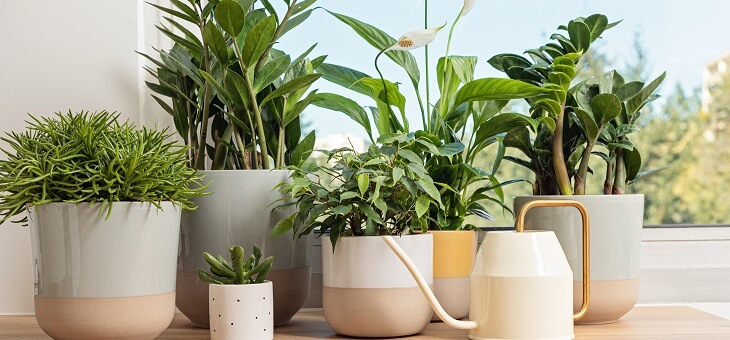Indoor plants are enjoying something of a renaissance.
There is a green revolution going on in our homes, as every flat surface is slowly being given over to hosting our latest purchase. Or is that just at my place?
Plants are good to look at, but there is also evidence they are good for you as well.
According to healthline.com, indoor plants may help reduce stress levels.
The website says a study published in the Journal of Physiological Anthropology found indoor plants can make you feel more comfortable, soothed and natural.
This probably only applies to people who don’t routinely kill their green charges. There are few things less soothing than regularly turning green plants into brown plants.
Read: How community gardens can deepen community ties and cut the food bill
They may also cut down on allergies. As natural air filters, plants catch allergens and other airborne particles.
However, studies have shown you might have to have an indoor jungle to match the efficiency of modern biofilters.
Some of the best plants to freshen the air naturally include Boston ferns, rubber trees, spider plants and ficuses.
And who doesn’t love a good flower? There’s a reason flowers are such a popular gift, it’s because they are wonderful. They brighten up a room, mark significant occasions and rewards and if they are part of a plant, can keep coming back for more of all that.
Plants can also add moisture to a dry environment. Heaters and air conditioners can dry out a space quickly, increasing the chances of catching a cold or virus. Just be sure to water your plants.
Read: Six world-famous gardens you can visit virtually
They can add convenience. Grow herbs inside and you have a little garden ready to go. Freshen up a room by crushing a few leaves as you pass or put them in hot water for a cheap diffuser. You can also make your own teas with lemon verbena, thyme or any of the various mints.
If you have sensitive skin, try growing an aloe plant. It’s ideal to treat sunburn and soothe psoriasis and other skin conditions. Squish it and strain it for juice to alleviate constipation.
Working with plants creates a soothing environment. A study found interaction with indoor plants may reduce psychological and physiological stress in young adults. Subjects felt more comfortable, soothed, and natural after a transplanting task.
“Our results suggest that interaction with indoor plants can reduce stress compared with mental work,” the study stated.
“This is accomplished through suppression of sympathetic nervous system activity, blood pressure and promotion of comfortable, soothed and natural feelings.”
Read: Eliminate mushrooms in houseplants
Weirdly, they may even sharpen your attention. A study found young students performed better in a classroom with real plants as opposed to a fake plant, a picture of a plant or no plant.
They were not mucking around with this one, they strapped all 23 participants to electroencephalogram machines and measured their brainwaves.
“The viewing of living plants prompted improvements in the attention and concentration of the students,” the study found.
“Furthermore, the presentation of the living plants was associated with more positive mood states, such as feelings of comfort and naturalness.”
If you enjoy our content, don’t keep it to yourself. Share our free eNews with your friends and encourage them to sign up.

